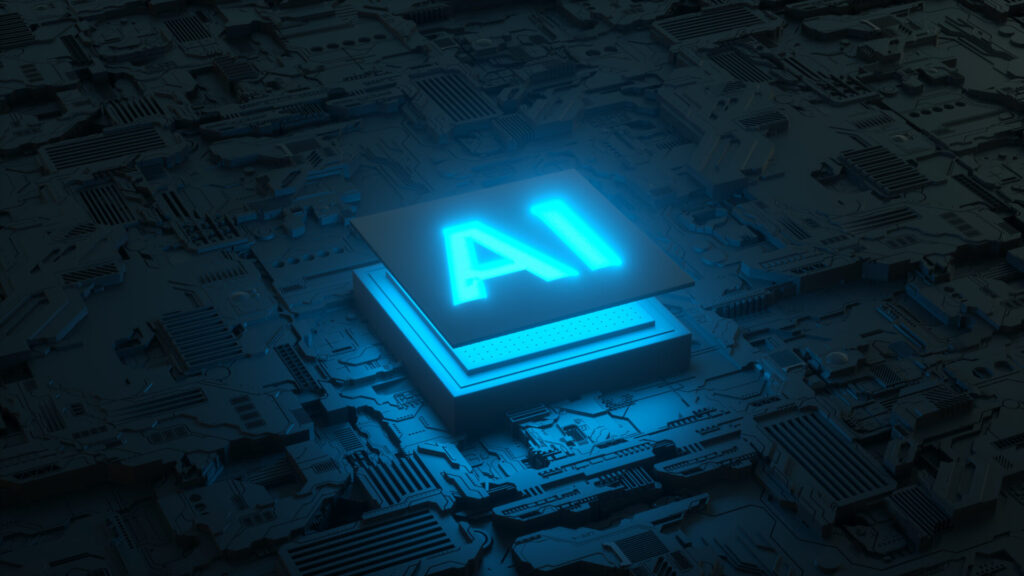
Why Artificial Intelligence is the Key to Global Sustainability Efforts
Sustainability has emerged as a critical global priority as climate change, resource depletion, and environmental degradation threaten the planet’s ecological balance. Governments, businesses, and individuals are increasingly adopting sustainable practices to mitigate these impacts. However, achieving sustainability goals requires innovation and efficiency. Artificial Intelligence (AI) has become a powerful tool in advancing sustainable practices by optimizing resource utilization, reducing waste, and enhancing decision-making processes. This article explores the various ways AI is revolutionizing sustainability across industries and its potential to create a greener future. The integration of Artificial Intelligence (AI) into sustainable practices represents a transformative shift in how industries approach environmental challenges. As the world grapples with pressing issues such as climate change, resource depletion, and pollution, AI emerges as a powerful ally, capable of enhancing efficiency and promoting sustainability across various sectors. This article explores the multifaceted role of AI in fostering sustainable practices, its operational implications, and the future potential it holds for a greener planet.

Understanding Sustainable AI
Sustainable AI refers to the development and deployment of artificial intelligence systems that minimize environmental impact while maximizing efficiency. Traditional AI operations often consume vast amounts of energy, contributing significantly to greenhouse gas emissions. For instance, training a single machine learning model can generate as much carbon dioxide as multiple cars over their lifetimes. To counteract these effects, sustainable AI focuses on optimizing energy use during data-intensive processes, employing techniques such as sparse modeling, which allows models to operate on smaller datasets with reduced computational demand.
Key Principles of Sustainable AI
Energy Efficiency: Sustainable AI emphasizes reducing the energy consumption associated with AI algorithms and hardware. This includes utilizing energy-efficient computing technologies and optimizing existing systems to lower their carbon footprint.
Resource Optimization: By leveraging AI’s analytical capabilities, organizations can optimize resource use in various processes, from supply chain management to energy consumption in data centers.
Lifecycle Considerations: Sustainable AI practices consider the entire lifecycle of AI systems—from design and development to deployment and eventual disposal—ensuring that environmental impacts are minimized at every stage.
Applications of AI in Promoting Sustainability
AI’s capabilities extend beyond operational efficiencies; they play a crucial role in addressing complex environmental challenges. Here are some notable applications:
AI in Climate Change Mitigation
AI plays a pivotal role in addressing climate change by improving energy efficiency, forecasting climate patterns, and enhancing carbon capture initiatives. Machine learning algorithms analyze vast datasets to predict weather patterns, detect climate anomalies, and assess risks associated with natural disasters. These insights enable policymakers to implement proactive measures, minimizing the adverse effects of climate change.
One of the most notable applications of AI in climate change mitigation is its role in optimizing energy consumption. Smart grids, powered by AI, dynamically adjust power distribution based on real-time demand, reducing energy waste. AI-driven predictive analytics also enhance the efficiency of renewable energy sources, such as wind and solar power, by forecasting supply and demand fluctuations. This optimization reduces reliance on fossil fuels, thereby lowering carbon emissions.
AI-Driven Sustainable Agriculture
The agricultural sector faces significant challenges related to resource overuse, soil degradation, and climate variability. AI is transforming agriculture by promoting precision farming techniques that maximize productivity while minimizing environmental impact. AI-powered sensors and drones monitor soil health, detect pest infestations, and optimize irrigation systems, ensuring efficient resource utilization.
For instance, AI-driven analytics help farmers determine the optimal time for planting and harvesting crops, reducing water consumption and preventing food wastage. Companies like Blue River Technology use AI-based systems to identify and target weeds with precision, minimizing herbicide usage and enhancing soil health. Such AI applications contribute to sustainable agriculture by improving yield quality while conserving natural resources.
AI in Waste Management and Circular Economy
Waste management remains a significant challenge in achieving sustainability. AI-powered waste sorting systems use computer vision and machine learning to segregate recyclable materials from non-recyclables, increasing recycling efficiency. These smart sorting technologies reduce landfill waste and support circular economy initiatives.
Additionally, AI-driven supply chain management systems track product life cycles, predicting when materials can be refurbished or reused. This approach minimizes raw material extraction and promotes a circular economy where waste is repurposed rather than discarded. Companies like AMP Robotics utilize AI to enhance recycling processes, reducing the strain on natural resources and decreasing environmental pollution.
AI for Sustainable Urban Development
As urban populations grow, cities face mounting environmental challenges, including air pollution, traffic congestion, and inefficient energy consumption. AI-powered smart cities leverage real-time data to enhance urban sustainability by optimizing traffic flow, reducing emissions, and managing public transportation systems more efficiently.
For example, AI-based traffic management systems use predictive analytics to adjust traffic signals, reducing congestion and fuel consumption. In addition, AI-driven building management systems regulate heating, cooling, and lighting based on occupancy patterns, significantly reducing energy consumption in commercial and residential buildings. Singapore’s smart city initiatives demonstrate how AI can create cleaner, more sustainable urban environments by integrating technology into city planning.
AI in Water Conservation
Water scarcity is a pressing global issue, exacerbated by climate change and population growth. AI is playing a crucial role in water conservation by improving water usage efficiency in various sectors. AI-powered leak detection systems use machine learning algorithms to identify leaks in water distribution networks, preventing significant water loss.
In agriculture, AI-driven irrigation systems optimize water distribution based on real-time soil moisture data, ensuring that crops receive the necessary hydration without overuse. Similarly, AI applications in wastewater treatment enhance purification processes by detecting contaminants and improving filtration techniques. These innovations help mitigate water scarcity and promote sustainable water management practices.

Ethical Considerations and Challenges
While AI presents numerous benefits for sustainability, it also raises ethical concerns and implementation challenges. AI systems require substantial computational power, leading to high energy consumption and carbon footprints. Researchers are exploring ways to develop energy-efficient AI models to mitigate these environmental impacts. While AI offers immense potential for sustainability, it also raises ethical and practical concerns. The energy consumption of AI systems, particularly during data-intensive processes, can contribute to carbon emissions. Researchers are working on developing energy-efficient AI models to address this issue. Data privacy and security are also critical concerns. The vast amounts of data required for AI analysis must be handled responsibly to protect sensitive information. Additionally, the automation of industries like agriculture and manufacturing could lead to job displacement. Addressing these challenges requires reskilling programs and ethical AI frameworks to ensure fairness and transparency.
The Future of AI in Sustainability
The future of AI in sustainability is bright. Emerging technologies, such as AI-driven carbon capture and storage, have the potential to significantly reduce greenhouse gas emissions. AI-powered climate models are also improving risk assessment and resilience planning for regions vulnerable to climate change.
Collaboration between governments, businesses, and researchers will be key to unlocking AI’s full potential. Investments in green computing, ethical AI development, and sustainable innovation will further enhance AI’s role in driving global sustainability efforts. By harnessing AI responsibly, we can accelerate progress toward a more sustainable and resilient future.
Conclusion
Artificial Intelligence is proving to be a game-changer in the quest for sustainability. From optimizing energy use and revolutionizing agriculture to transforming waste management and building smarter cities, AI-driven solutions are addressing some of the world’s most pressing environmental challenges. However, realizing AI’s full potential requires addressing ethical concerns and ensuring responsible implementation. By leveraging AI as a force for good, we can strike a balance between technological advancement and environmental stewardship, paving the way for a sustainable future. In essence, sustainable AI is not just a tool for reducing the environmental impact of technology, it’s a catalyst for broader sustainability efforts. Through continued innovation and a commitment to ethical practices, AI can play a pivotal role in shaping a greener, more sustainable world for generations to come.
Artificial Intelligence is revolutionizing sustainability by optimizing resource usage, mitigating climate change, and promoting circular economy principles. From energy efficiency and waste management to smart agriculture and urban planning, AI-driven solutions are transforming industries and driving global sustainability efforts. However, the ethical implications of AI adoption must be addressed to ensure responsible and equitable implementation. By leveraging AI as a force for good, humanity can achieve a harmonious balance between technological advancement and environmental stewardship, paving the way for a sustainable future. Sustainable Artificial Intelligence represents a critical pathway toward achieving global sustainability goals while addressing pressing environmental challenges through innovative technological solutions. By optimizing processes across various sectors from agriculture to energy management AI holds the potential to significantly reduce our environmental footprint while promoting efficiency. As we continue to explore the intersection of technology and sustainability, it becomes increasingly clear that sustainable AI is not just an option; it is an imperative for a resilient future. By harnessing the power of artificial intelligence responsibly, we can pave the way towards a more sustainable world that balances economic growth with ecological preservation.
In summary, understanding sustainable AI involves recognizing its dual nature both as a means of reducing the environmental impact of technology itself and as a tool for addressing broader sustainability challenges. Through continued innovation and commitment to responsible practices, sustainable AI can play a pivotal role in shaping a greener future for all.

Prachi, an accomplished Chief-Editor at The Sustainable Brands Journal, has 15+ years of experience in Europe, the Middle East, and India, managing 90+ global sustainable brands. She’s a prolific writer in sustainability, contributing to various publications. Prachi’s unwavering passion and expertise make her a recognized authority, driving positive change and inspiring a sustainable future.





